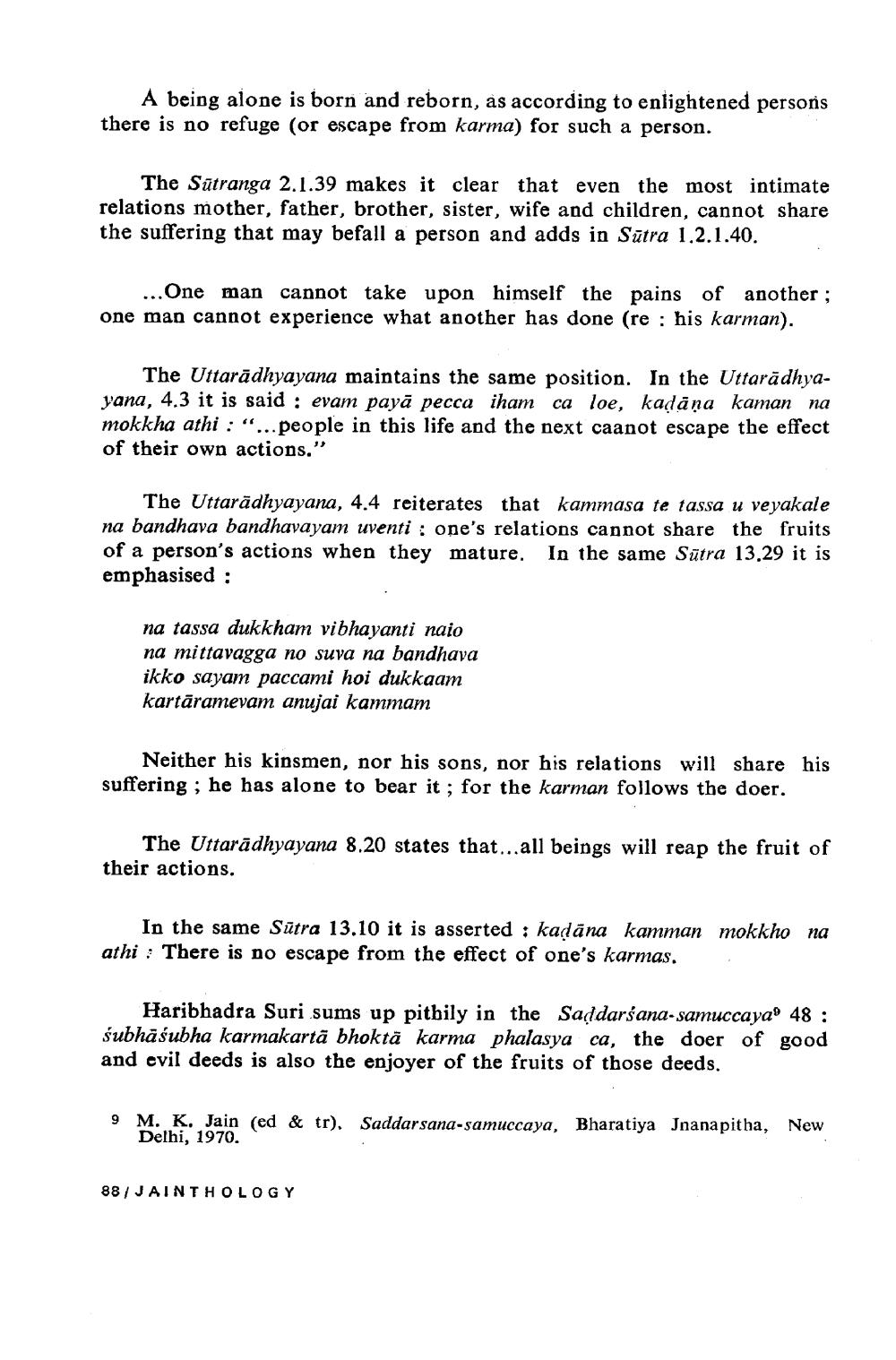________________
A being alone is born and reborn, as according to enlightened personis there is no refuge (or escape from karma) for such a person.
The Sūtranga 2.1.39 makes it clear that even the most intimate relations mother, father, brother, sister, wife and children, cannot share the suffering that may befall a person and adds in Sūtra 1.2.1.40.
...One man cannot take upon himself the pains of another; one man cannot experience what another has done (re : his karman).
The Uttarādhyayana maintains the same position. In the Uttarādhyayana, 4.3 it is said : evam payā pecca iham ca loe, kadāņa kaman na mokkha athi : “...people in this life and the next caanot escape the effect of their own actions."
The Uttarādhyayana, 4.4 reiterates that kammasa te tassa u veyakale na bandhava bandhavayam uventi : one's relations cannot share the fruits of a person's actions when they mature. In the same Sūtra 13.29 it is emphasised :
na tassa dukkham vibhayanti naio na mittavagga no suva na bandhava ikko sayam paccami hoi dukkaam kartāramevam anujai kammam
Neither his kinsmen, nor his sons, nor his relations will share his suffering ; he has alone to bear it ; for the karman follows the doer.
The Uttarādhyayana 8.20 states that...all beings will reap the fruit of their actions.
In the same Sūtra 13.10 it is asserted : kadāna kamman mokkho na athi : There is no escape from the effect of one's karmas.
Haribhadra Suri sums up pitbily in the Saddarśana-samuccayao 48 : śubhāśubha karmakartā bhoktä karma phalasya ca, the doer of good and evil deeds is also the enjoyer of the fruits of those deeds.
9
M. K. Jain (ed & tr). Saddarsana-samuccaya, Bharatiya Jnanapitha, New Delhi, 1970.
88/JAINTHOLOGY




